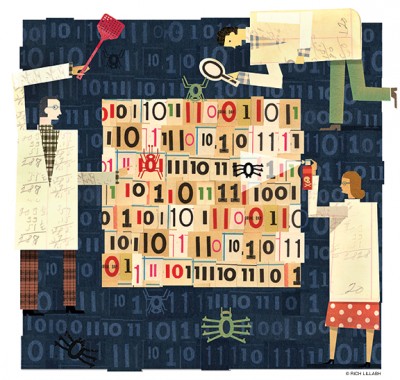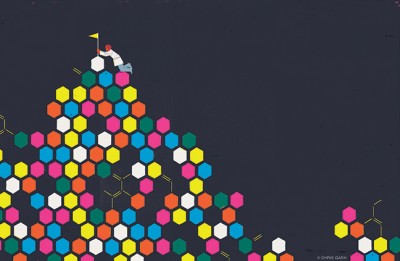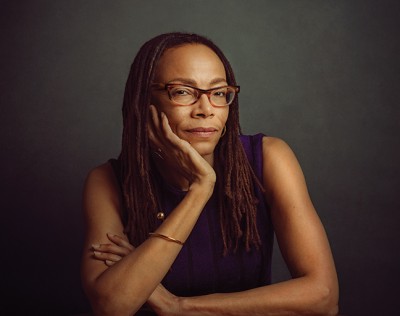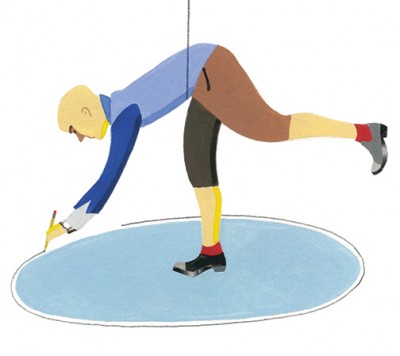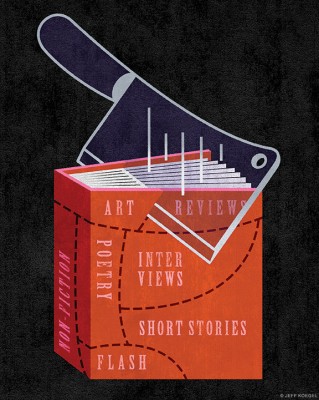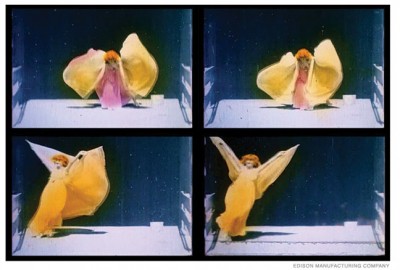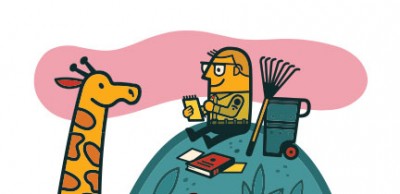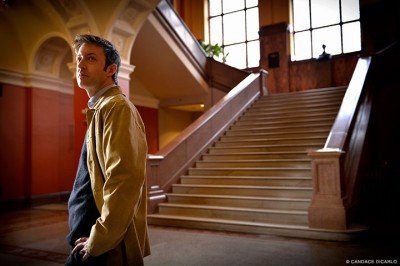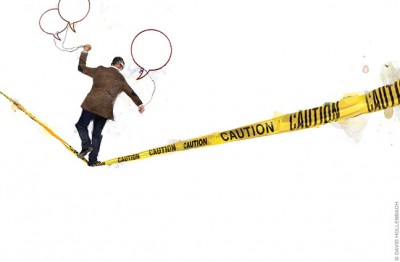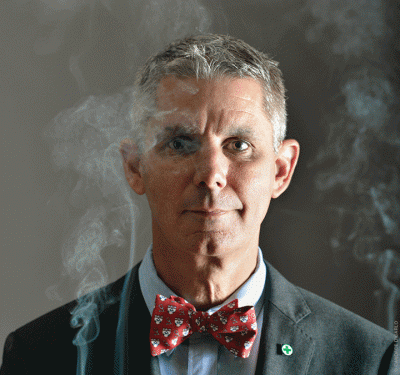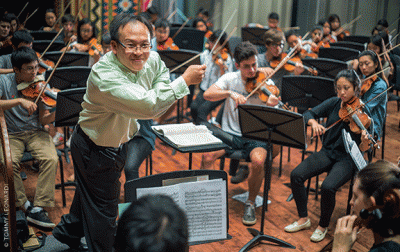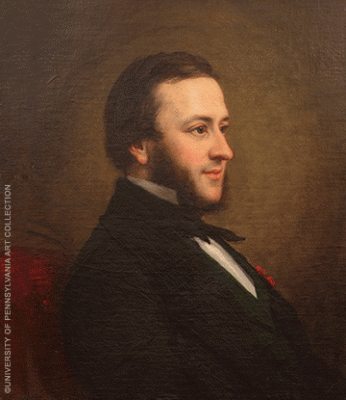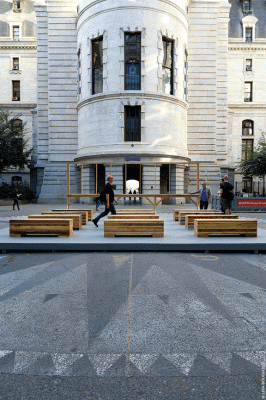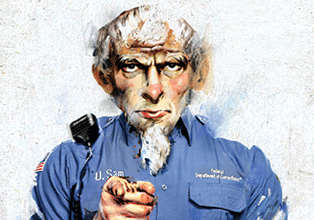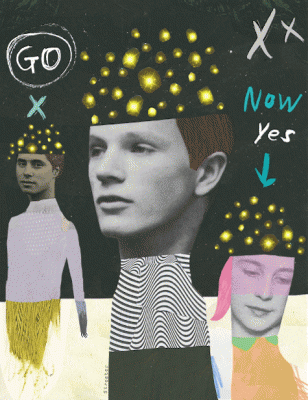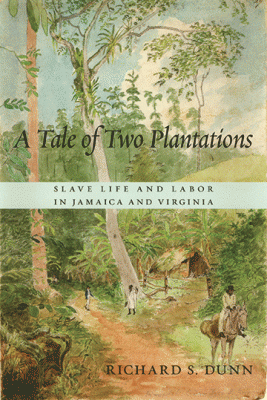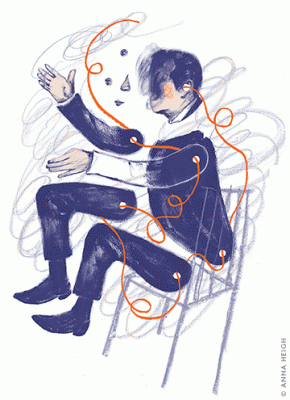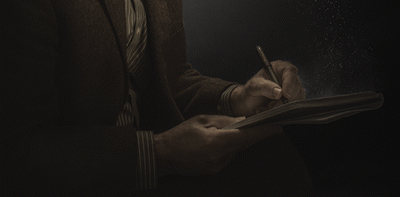Math Versus Computer Bugs
Computer scientists working to debug software using mathematics.
The New Biology
From matchbook-sized models of living human organs to the surprising alternative-energy implications of symbiotic giant clams, the work of three new faculty members represents the changing face of bioscience at Penn.
Dangerous Ideas
PIK Professor Dorothy Roberts exposes how the myth of biologically distinct races—forged in the era of slavery—continues to poison the present, affecting attitudes and policies on everything from child welfare to medical treatment.
Imagination Man
Scott Barry Kaufman has been called “the leading empirical creativity researcher of his generation.” Now he wants to use the tools he’s developed to unleash the “quiet potential” of vulnerable people—including kids like him—and help them flourish.
Inside Cleaver
Karen Rile C’80 wields Cleaver.
The Essential Tinseltown
Cinema studies’ Peter Decherney on Hollywood history.
“Historic Philadelphia,” Rethought
Historic preservation studio challenges neighborhood assumptions.
An Ethnographer Among the Hyenas
Q&A on sociologist David Grazian’s American Zoo.
That Roosevelt
Penn Law professor, legal scholar, and novelist Kermit Roosevelt III is doing his best to live up to the family name—including, in his latest book, by tackling cousin Franklin’s executive order authorizing the confinement of more than 100,000 Japanese Americans in internment camps during World War II.
The Wandering Syrians
Fellow wanderers.
Our Labs, Our Health?
In Risky Medicine, History and Sociology of Science Professor Robert Aronowitz argues that today’s fixation on diagnosing and managing risk factors rather than treating diseases leads to anxiety and stress, over-diagnosis of conditions and overuse of drugs, and radical treatments that are unnecessary or harmful.
Walking on a Wire
One hundred years after a Penn professor was famously fired for his political views, a campus symposium on academic freedom wrestled with a familiar question: Are universities still homes of free speech and inquiry?
Pulling Weeds
David Casarett used to just say No when his hospice and palliative-care patients asked about using medical marijuana as a treatment or to relieve their symptoms. After researching and writing his new book, Stoned, his answer is “a lot more nuanced.”
Behind the Baton at the PSO
Thomas Hong, Penn Symphony Orchestra’s new director.
The Art of Dentistry
Courtly Treasures at the Arthur Ross Gallery.
Monument Man
Monument Lab memorializes sculptor Terry Adkins.
Crimes of Punishment
Q&A: Marie Gottschalk on America’s sky-high incarceration rate.
Politics and Poetry in Kashmir
English Professor Suvir Kaul on Kashmir’s rich poetry and tragic politics.
Plastic Fantastic
Penn Medicine’s Frances E. Jensen is a leader in studying how the brain develops and what that means for learning, behavior, and the treatment of disease at different ages. For her book on the teenage brain, she drew on the latest neuroscience findings—and the experiment going on in her own home.
Grim and Grimmer
Terrible suffering, strikingly dissimilar. A Tale of Two Plantations.
Rediscovering the Impromptu Man
Jonathan Moreno on “J.L.,” his psychodrama-founding father.
Moving on from Marx
An emeritus professor of sociology recalls his political and intellectual evolution.
Elementary
Even in the era of Big Science, some of the greatest discoveries start with someone—Penn physics professor and Nobel contender Charles Kane, for instance—just sitting in a room and thinking.
(Cr)ISIS and Opportunity
Q&A with Iraq expert Brendan O’Leary.

